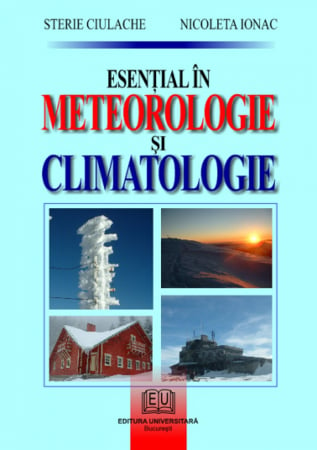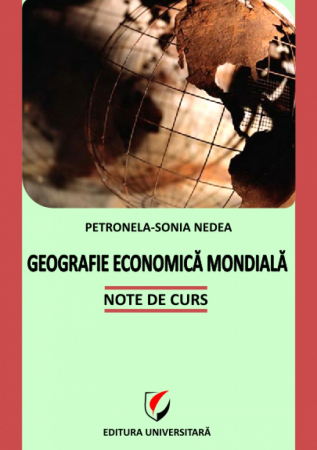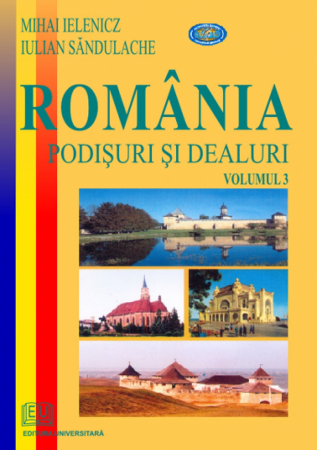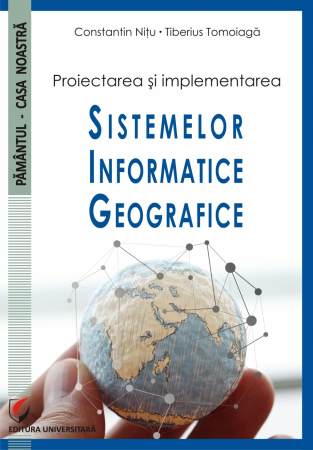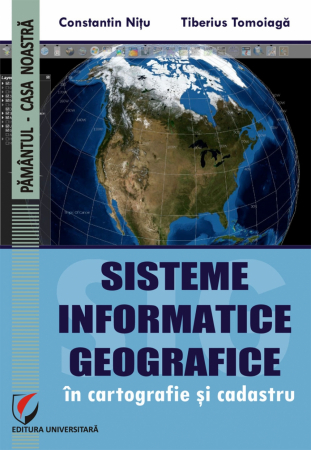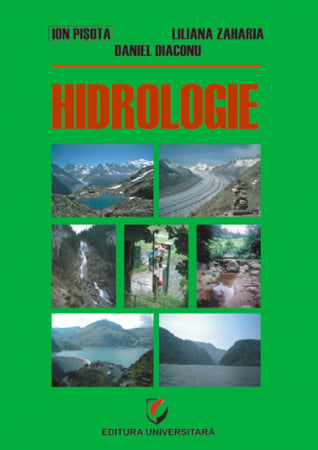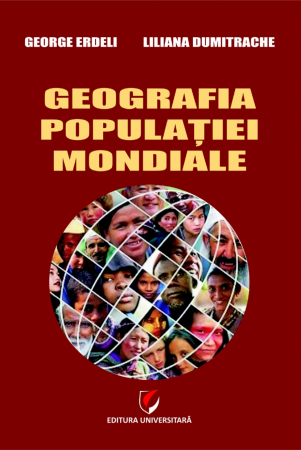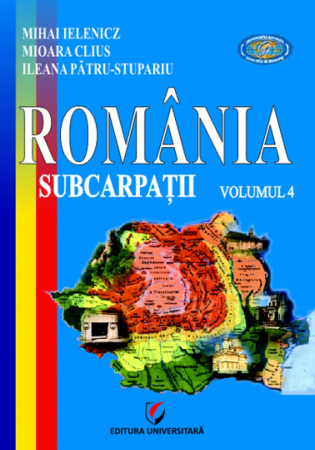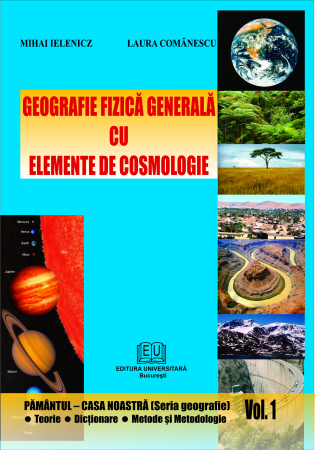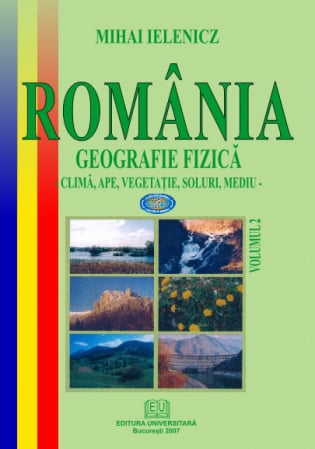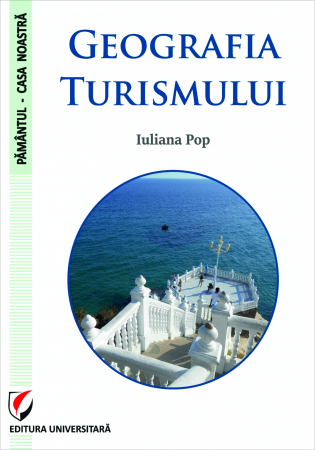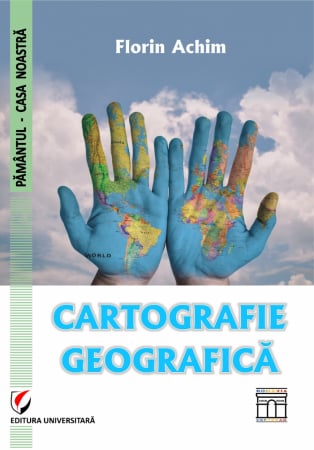ISBN: 978-606-28-1077-1
DOI: https://doi.org/10.5682/9786062810771
Publisher year: 2020
Edition: I
Pages: 178
Publisher: Editura Universitară
Author: Elena Matei
- Description
- Download (1)
- Authors
- Content
- More details
- Reviews (0)
Geography is a discipline of vital importance in the formation of the human individual, enabling man to carry out daily life by understanding how nature works, how to prepare to respond correctly to environmental manifestations, how to report his actions for to reduce the negative effects and to maximize, multiply the benefits in relation to each space and human community. It is the most appropriate science in human formation in the context of the paradigm of sustainable development that marks the 21st century. It is the discipline that increases sustainable education in the current education system, by approaching the integrated curriculum.
Geography looks equally at the physical, geographical environment and society, but, especially, the spatio-temporal interaction between people and places, helps us to understand the past, to live correctly the present in order to plan a sustainable future. Geography influences careers, lives by understanding connections, opportunities for life, opens to people a proper perspective on how to act in order to be satisfied themselves, but also to leave a better slope for future generations.
Geography builds visions in students, transformed into correct actions in their lives, by good citizens.
-
Didactics of Geography. Course Notes
Download
INTRODUCTION / 5
TABLE OF CONTENTS / 9
CHAPTER 1 / 12
GENERAL DIDACTICS AND DIDACTICS OF GEOGRAPHY: DEFINITIONS, HISTORY, PRINCIPLES / 12
1.1. The concepts of general didactics and geography didactics / 12
1.2. The history of the didactics of the specialty and geography as a school discipline in Romania / 13
1.3. Principles of general didactics / 17
1.4. Principles of geography teaching / 24
Bibliographic resources / 28
Bibliographic recommendations / 29
Applications / 29
CHAPTER 2 / 30
THE IDEAL / EDUCATIONAL AND THE PURPOSES OF EDUCATION. COMPETENCES IN LEARNING-TEACHING GEOGRAPHY. CURRENT OBJECTIVES OF STUDYING GEOGRAPHY IN SCHOOL / 30
2.1. The educational ideal / 30
2.2. The aims of education / 31
2.3. Competences in teaching-learning geography / 31
Bibliographic resources / 36
Bibliographic recommendations / 36
Applications / 36
CHAPTER 3 / 37
THE CONTENT OF GEOGRAPHY EDUCATION. SCHOOL CURRICULUM. CURRICULAR PRODUCTS / 37
3.1. The notion of content of geography education / 37
3.2. Transposing the content of geography education in the school curriculum / 40
3.2.1. School curriculum / 40
Bibliographic resources / 49
Bibliographic recommendations / 50
Applications / 50
CHAPTER 4 / 51
USE OF TEACHING METHODOLOGY IN GEOGRAPHY LESSONS / 51
4.1. Teaching strategies as procedural resources / 51
4.2. Teaching methods-procedural resources used in teaching-learning geography / 53
4.2.1. Methods focused on the role of the teacher / 56
4.2.4. Complementary methods / 59
4.2.2. Methods focused on the role of the student / 62
4.2.3. Action - based methods / 66
4.2.5. Active-participatory methods in interactive strategies / 72
Bibliographic resources / 82
Bibliographic recommendations / 83
Applications / 83
CHAPTER 5 / 84
EDUCATIONAL MEANS AS MATERIAL RESOURCES AND EQUIPMENT USED IN TEACHING-LEARNING GEOGRAPHY / 84
5.1. Concepts: means of education, material resources and equipment, logistical resources / 84
5.2. Classification of teaching aids / 85
5.3. Use of educational means in geography / 86
Bibliographic resources / 97
Bibliographic recommendations / 97
Applications / 97
CHAPTER 6 / 98
WAYS AND FORMS OF ORGANIZATION OF THE GEOGRAPHY EDUCATION PROCESS / 98
6.1. Teaching activity design / 100
6.1.1. Annual planning → Macroprojection / 100
6.1.2. Content unit planning / 103
6.1.3. Designing geography lessons / 104
6.2. Models for structuring lessons / 111
6.3. Additional teaching activities / 113
6.4. General recommendations regarding the organization of didactic activities in geography / 115
Bibliographic resources / 115
Bibliographic recommendations / 116
Applications / 116
CHAPTER 7 / 117
EVALUATION OF LEARNING OUTCOMES IN GEOGRAPHY / 117
7.1. Evaluation-component of the educational process / 117
7.2. Evaluation functions / 120
7.3. Types of evaluation / 120
7.4. Assessment strategies in geography: methods, techniques, assessment tools / 122
7.5. Quality of the evaluation / 127
7.6. Evaluation models / 128
7.7. Complementary evaluation procedures and tools
7.8. Typical mistakes in the geography assessment act / 131
Bibliographic resources / 133
Bibliographic recommendations / 133
Applications / 133
CHAPTER 8 / 134
EXTRACURRICULAR TEACHING ACTIVITIES IN GEOGRAPHY / 134
8.1. School visit / 134
8.2. School trip / 135
8.3. School trip / 136
8.4. Typical errors in the organization of extracurricular activities / 140
Bibliographic resources / 140
Bibliographic recommendations / 141
Applications / 142
CHAPTER 9 / 143
DIDACTIC-MATERIAL BASE OF THE SCHOOL SPECIFIC TO GEOGRAPHY / 143
9.1. Geography Cabinet / 143
9.2. Geographical terrain / 148
9.3. Typical errors in the organization of school spaces for geography / 151
Bibliographic resources / 152
Bibliographic recommendations / 152
Applications / 152
CHAPTER 10 / 153
THE OFFICIAL INTERACTIONS OF THE GEOGRAPHY TEACHER AND THE STUDENT COMMUNITY AS PART OF THE SCHOOL ACTIVITIES / 153
10.1. Regulations regarding the good development of activities in schools / 153
10.2. The official interactions of the geography teacher in the school institution / 154
10.3. Teaching styles of geography teachers / 156
Bibliography / 152
Annex I / 153
Annex II / 168
Geography, as a science and educational discipline that has as object of study the Earth, has transformed from a field focused on the description and / or mapping of the planet into one that analyzes through its specific techniques the complexity of the world, the dynamics of physical and human processes. these at different time scales, to provide the framework for understanding how they work and finding solutions to problems that arise permanently, so as to help improve livability for present and future generations.
Geography is a discipline of vital importance in the formation of the human individual, enabling man to carry out daily life by understanding how nature works, how to prepare to respond correctly to environmental manifestations, how to report his actions for to reduce the negative effects and to maximize, multiply the benefits in relation to each space and human community. It is the most appropriate science in human formation in the context of the paradigm of sustainable development that marks the 21st century. It is the discipline that increases sustainable education in the current education system, by approaching the integrated curriculum.
Geography looks equally at the physical, geographical environment and society, but, especially, the spatio-temporal interaction between people and places, helps us to understand the past, to live correctly the present in order to plan a sustainable future. Geography influences careers, lives by understanding connections, opportunities for life, opens to people a proper perspective on how to act in order to be satisfied themselves, but also to leave a better slope for future generations.
Geography builds visions in students, transformed into correct actions in their lives, by good citizens. In this context, the course cannot offer miraculous teaching-learning solutions, but, grafted on what is circulated in the current didactic space, it presents application structures, which can generate through experience, teachers' creativity an infinity of didactic approaches. Thus, geography perceived as a discipline based on the power of memory can and must be transformed into one that forms the individual to understand systemically the planet, the physical-geographical and human coupling on each space, how to use information, creatively, critically, innovatively in life, profession. The spectacle of the planet, the societies that constitute the contents of geography attract, and, therefore, this discipline must be coupled with attractive, engaging, active teaching activities, strongly anchored in the present technique, itself being an instrument of the digital world. Geography must be conducted in the didactic process from these perspectives, to be flexible on the current requirements of humanity, to harmonize the competencies acquired in school with their application in life.

6359.png)
![Didactics of Geography. Course Notes [1] Didactics of Geography. Course Notes [1]](https://gomagcdn.ro/domains/editurauniversitara.ro/files/product/large/didactica-cop-1-3055-6002.jpg)
